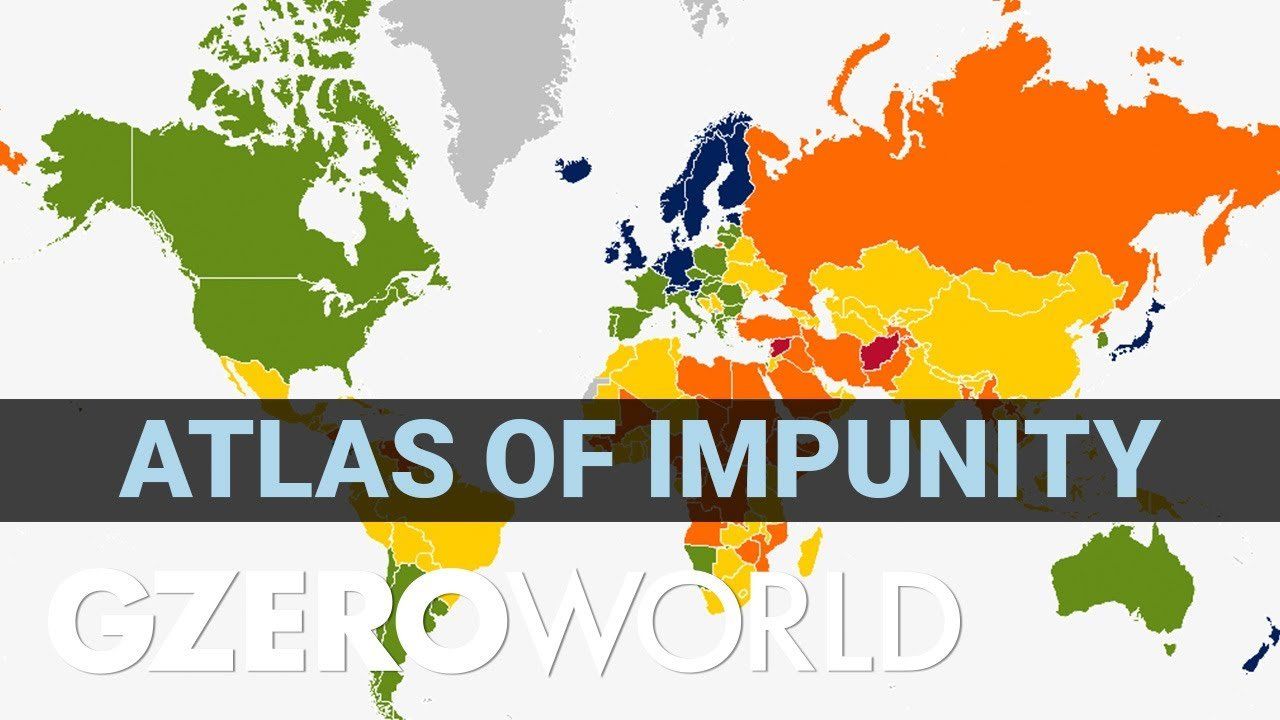GZERO World Clips
David Miliband and Ian Bremmer discuss the Atlas of Impunity

Why the Atlas of Impunity matters for every country in the world | GZERO World

What is power without accountability? Impunity. On GZERO World, Ian Bremmer and President and CEO of the International Rescue Committee, David Miliband, discuss the Atlas of Impunity, a global project created by Eurasia Group, the Chicago Council on Global Affairs, and funded by the Open Society Foundations. You can find the Atlas of Impunity at: www.atlasofimpunity.com. The Atlas ranks every country in the world on five aspects of impunity: conflicts, human rights, governance, economic exploitation, and environmental degradation.
Miliband argues that impunity, or “the exercise of power without accountability,” is increasing and “covers swaths of national and international life,” well beyond just war zones. He also emphasizes the importance of including the environment as a standard of of measuring impunity.
The Atlas of Impunity is meant to be a tool for people around the world to see how their own country scores on the five indicators. And what does this Atlas tell us? Miliband stresses the need for a “countervailing power, which starts with transparency,” followed by actions that "governments, businesses, and civil society” need to take to counter the increasing danger of the abuse of power.
In this Quick Take, Ian Bremmer examines what may come next in the US-Israel war with Iran as the Trump administration signals significantly larger military operations ahead.
Indian Prime Minister Narendra Modi and Canadian Prime Minister Mark Carney struck a series of deals during a meeting in New Delhi on Monday, including a 10-year nuclear energy deal under which Canada will provide India with uranium.
A satellite image shows black smoke rising and heavy damage at Iranian Supreme Leader Ayatollah Ali Khamenei's compound, following strikes by the United States and Israel in Tehran, Iran, on February 28, 2026.
Supreme Leader Ali Khamenei is dead, the conflict is spreading, and US President Donald Trump still isn’t clear on who he wants to run Iran.
Shipping in the world’s most crucial oil chokepoint has nearly ground to a halt after at least four tankers were targeted in Iran’s retaliation to US and Israeli strikes on Saturday.